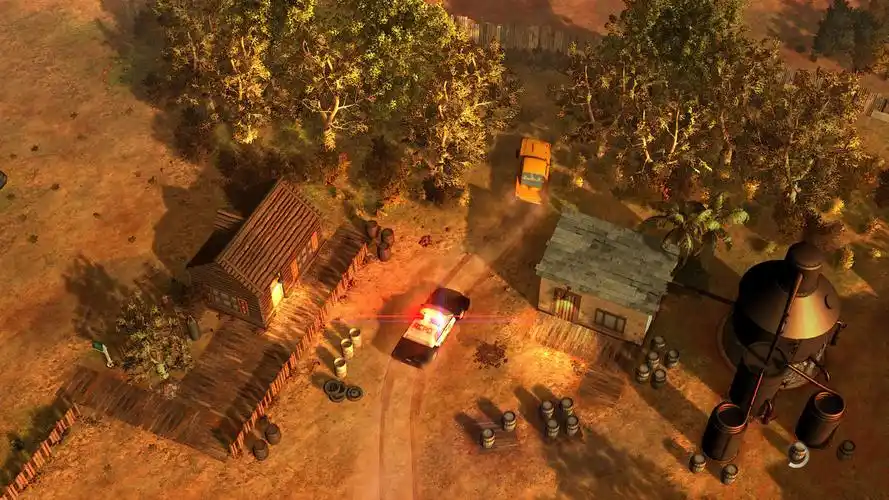Forecasting Major Trends in Deep Game News: The Next Evolution in Interactive Media
The video game industry is no longer a niche entertainment sector; it is a cultural and technological behemoth. Reporting on it has evolved from simple reviews and previews into a complex ecosystem of analysis, critique, and investigative journalism—often termed "deep game news." This form of journalism delves beyond surface-level announcements, exploring the technological, artistic, business, and societal implications of games. As we look toward the future, several major trends are poised to fundamentally reshape how we create, consume, and report on deep game news.
1. The Generative AI Revolution in Development and Discourse
The most disruptive force on the horizon is the pervasive integration of Artificial Intelligence, specifically generative AI. Its impact will be twofold, affecting both game creation and game journalism.
In development, AI tools are moving from assisting with tasks like NPC behavior to generating entire worlds, dialogues, and even core game mechanics. Deep game news will shift from reporting on "how a team of 500 built a world" to investigating "how a creative director guided an AI to co-create a world." This raises profound questions that journalists must tackle: Who owns the copyright to an AI-generated asset? How does it impact the workforce of artists and writers? What does "originality" mean in this context? Articles will feature interviews with AI ethicists, legal experts, and developers navigating this new paradigm, moving beyond mere tech specs to deep ethical and philosophical exploration.
Simultaneously, AI will become a tool for newsrooms themselves. We can expect AI-powered analytics to scan thousands of game patches, financial reports, and forum discussions to identify emerging trends or brewing controversies long before they hit mainstream awareness. Automated systems might generate first drafts of routine financial earnings reports or patch note summaries, freeing journalists to focus on deep analysis, investigative pieces, and human-interest stories about the developers behind the tech.

2. The Metaverse Recalibration: From Hype to Practical Application
The buzzword "Metaverse" has been met with equal parts excitement and skepticism. The next trend in deep game news will be the move away from abstract, all-encompassing Metaverse hype and toward reporting on concrete, game-first applications of persistent digital worlds.
The focus will be on games that successfully create sustainable digital economies and social spaces. Deep game news will analyze platforms like Fortnite, Roblox, and VR Chat not just as games, but as social hubs and digital economies. Reporters will need the acumen of a business journalist to explain play-to-earn models, NFT integrations (despite their current controversy), and the creator economies within these spaces. Investigative pieces will explore issues of digital governance, user safety, and the psychological effects of living a second life online. The question won't be "Will the Metaverse happen?" but "How are these specific game-based metaverses evolving, and what are their real-world impacts?"
3. The Ascendance of the Indie and AA Ecosystem
While blockbuster AAA titles will always command headlines, the true innovation and diversity in gaming are increasingly coming from indie and mid-tier "AA" studios. Deep game news will reflect this shift, dedicating more coverage to these smaller, more agile teams.
This coverage will be less about previews and more about deep dives into unique development stories, innovative business models (such as early access and direct-to-consumer sales), and the artistic statements these games make. We will see more profiles on individual developers, explorations of niche genres, and analyses of how smaller teams leverage new tools like Unreal Engine 5 and cloud computing to achieve AAA-quality visuals on a budget. This trend celebrates the auteur in gaming, treating game directors and small teams with the same reverence that film criticism gives to independent filmmakers.
4. The Deepening of Critical Analysis and Cultural Studies
As the medium matures, so too does its criticism. Deep game news is moving beyond traditional review scores into long-form critiques that examine games as art, as narrative constructs, and as reflections of society.
We will see more articles that deconstruct game narratives through a literary theory lens, analyze level design as an architectural and psychological exercise, and critique games for their political and social commentary—or lack thereof. This trend also includes a necessary and growing focus on representation, labor practices (e.g., "crunch"), and the ethical implications of monetization. Journalists will need expertise not just in games, but in sociology, economics, and literary theory to provide the depth of analysis their audience will demand. The discourse will elevate games from "fun pastimes" to culturally significant artifacts worthy of serious academic-style scrutiny.
5. Personalized and Interactive News Experiences
The way audiences consume game news is also changing. The future lies in dynamic, personalized content. News platforms will use algorithms to curate deep-dive articles based on a user's specific game library interests.
Furthermore, the line between the news and the game itself will blur. Imagine reading an investigative article about a game's historical accuracy within a companion app that overlays additional information onto the game world itself. Or, video essays embedded within cloud-streamed games, allowing players to pause their gameplay and access a critical analysis of the level they are in. This interactive, integrated form of journalism will create a more immersive and informative experience for the player, making deep game news an integral part of the gaming ecosystem itself.
Conclusion: A More Complex and Consequential Landscape
The future of deep game news is one of greater complexity and consequence. It will demand journalists who are not only gamers but also technologists, economists, ethicists, and cultural critics. The stories will be less about what game is coming out and more about how these games are made, what they mean, and how they impact our world. By embracing these trends—AI, practical metaverses, indie innovation, deep criticism, and interactive delivery—game journalism will finally secure its place as an essential discipline for understanding one of the most influential mediums of the 21st century.


















